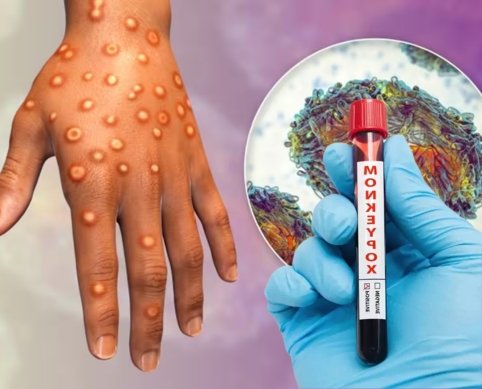Health Ministry confirms detection of Mpox virus clade-2 in an isolated patient

The Health Ministry confirmed on Monday, September 9, 2024, that the previously suspected case of Mpox (monkeypox) is a travel-related infection.
“The patient carries the West African clade 2 Mpox virus, according to laboratory testing. According to WHO reports, this case is isolated, similar to the 30 previous cases that have been documented in India since July 2022, and it has nothing to do with the ongoing public health emergency regarding clade 1 of Mpox, the Ministry said.
The patient, a young male who recently returned from a country with ongoing Mpox transmission, is currently being treated in isolation at a designated tertiary care facility. The Ministry noted that the individual remains clinically stable, with no underlying health conditions or systemic illness, and the case is being managed following standard protocols.
Public health measures, including contact tracing and monitoring, have been implemented to prevent further spread. The Ministry assured that there is no indication of widespread public risk at this time.
Mode of transmission
The Health Ministry reported that most cases in the current Mpox outbreak, formerly known as monkeypox, are among young males with a median age of 34 years (ranging from 18 to 44 years). Globally, the primary mode of transmission is sexual contact, followed by person-to-person non-sexual contact.
In cases where symptoms are present, the most common symptom is a rash (which can be systemic or genital), followed by fever.
According to available data, approximately 51.9% of those with known HIV status are individuals living with HIV. This information aligns with the trends shared by the World Health Organization regarding the current spread of Mpox.
Following the investigation of a suspected Mpox case in India, the Ministry has issued a directive to all states and union territories. The guidance emphasizes that healthcare workers, particularly those in skin, STD, and NACO clinics, should be informed about the common signs and symptoms of Mpox. The directive also outlines the necessary steps to take upon detecting a case, including isolation procedures, clinical management, and treatment of complications, all while adhering to established protocols.
The current mpox outbreak has been classified as a Public Health Emergency of International Concern (PHEIC) by the WHO. This marks the second time Mpox has been associated with a PHEIC under the International Health Regulations, 2005, which India adheres to. According to WHO, this decision follows a significant increase in Mpox cases in the Democratic Republic of Congo over the past six months, the emergence of new cases in East African countries such as Burundi, Kenya, Rwanda, and Uganda, and the identification of a new clade (Clade Ib) of the Mpox virus, which has spread to several neighboring countries,” stated Health Secretary Apurva Chandra in his communication.
Moderate risk
He noted that according to the latest update from WHO, the risk of the current Mpox outbreak spreading beyond Africa is considered moderate.
“The Health Ministry is actively monitoring the situation as it develops. Our disease surveillance network, part of the Integrated Disease Surveillance Programme, is vigilant for any clusters of cases. Health units at entry points such as airports have been instructed to enhance health screening for incoming travelers to identify any potential cases.
Additionally, the laboratory network managed by the Indian Council of Medical Research has been bolstered to facilitate the testing of samples from suspected cases. State AIDS control societies are also being advised to remain alert, improve community awareness, and encourage timely reporting of cases,” stated the Health Ministry.
The Ministry has mandated the screening and testing of all suspected cases within the community, whether through hospital-based or targeted surveillance at intervention sites identified by NACO, including those for female sex workers (FSW) and men who have sex with men (MSM).
Healthcare facilities have been directed to implement thorough and clear risk communication strategies for healthcare workers at identified sites, including skin and pediatric OPDs, immunization clinics, and NACO intervention sites. This communication should focus on simple preventive measures and emphasize the importance of prompt case reporting.
“The Ministry urges all States to carry out awareness campaigns to inform communities about the disease, its transmission, the importance of timely reporting, and preventive measures. Additionally, it is crucial to avoid causing unnecessary panic among the public,” the Ministry stated.









